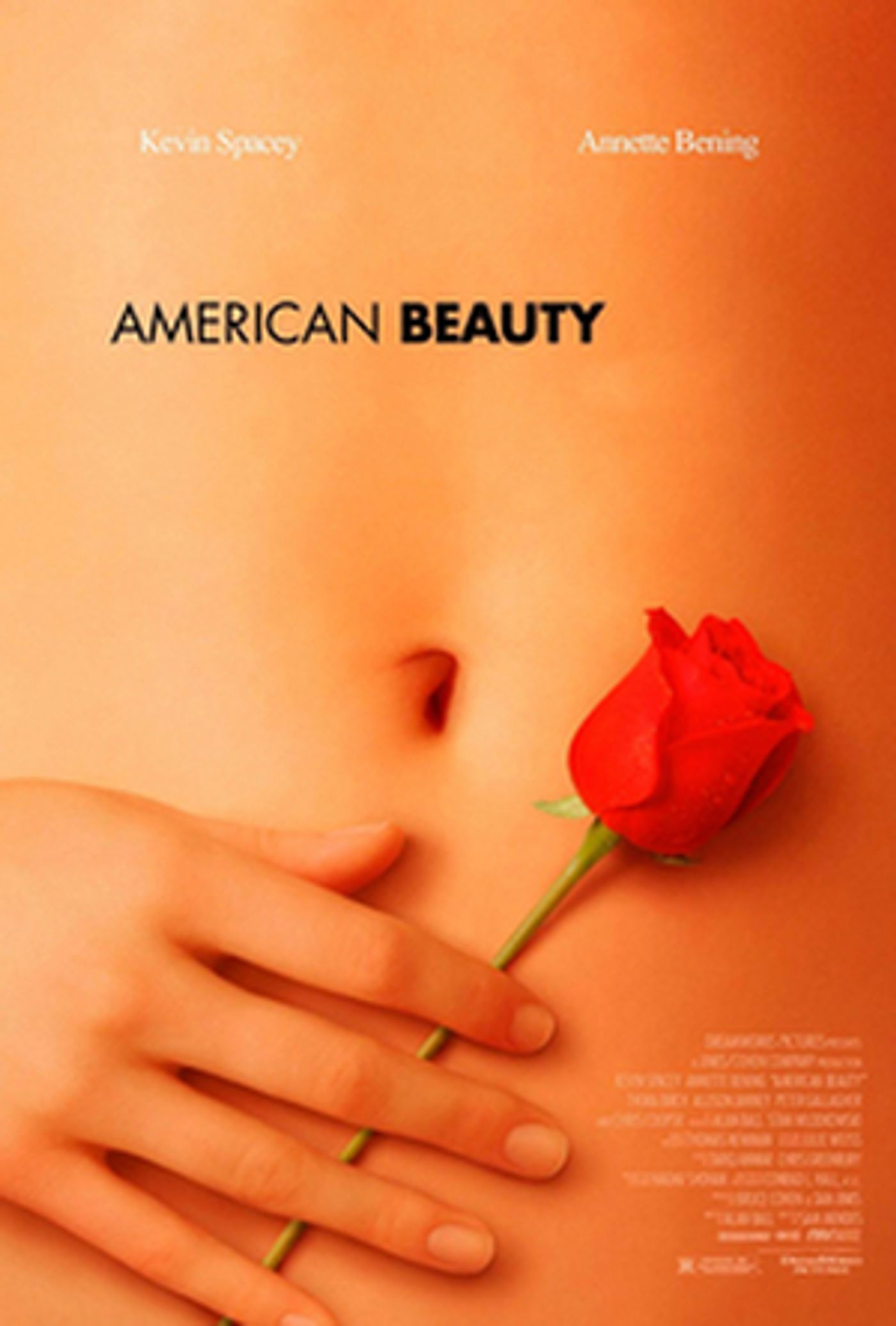
Reading play texts is an enjoyable way of attaining the theatre fix we're all feeling deprived of during these unprecedented times. It got us thinking about some screenplays and novels that could make for interesting stage adaptations.
American Beauty by Alan Ball
Writer Alan Ball originally conceived the multiple-Oscar-winning American Beauty as a play. It's the kind of film that's no longer at the forefront of cinema, but this type of storytelling suits the stage.
The story of a middle-aged man experiencing an existential crisis, the movie's marketing slogan invited us to 'look closer'. An intricate character study that takes obvious influences from Arthur Miller (the next door neighbours are even called the Lomans!), there is a wealth of subtext underlying an exquisitely written script. Addressing the dark side of the American Dream, the film also explores universal themes of love, money, materialism and identity.
The movie was praised for its innovative, stylistic cinematography, but with punchy, yet thought-provoking dialogue, enthralling characters with their own compelling story arcs and a tragic climax, this would no doubt lend itself well to theatre. Get the film's director Sam Mendes at the helm and this would surely sell tickets.
Lanny by Max Porter
Porter placed himself on the map with his Ted Hughes-influenced morphing of prose and poetry Grief is the Thing with Feathers. Cillian Murphy portrayed the protagonist in a stage adaptation, which played all-too-briefly at the Barbican last year. The production permitted Porter's world to be emphasised and embellished while allowing his lyrical writing to radiate and reverberate with a live audience.
Lanny, Porter's follow-up, was equally well-received and long-listed for the Booker Prize in 2019. The story is set in a village commutable to London. The village belongs both to the people who reside there, but also the people who died there. Domestic drama meets fantastical fable: the novella once again showcases Porter's sensitivity to the human spirit and his ability to observe the world from a different yet relatable perspective. Again, theatre could no doubt enhance the material and usher audiences into the world Porter has created in a way that no other art form can.
The Patrick Melrose novels by Edward St. Aubyn
Ambitious, yes, but when has that ever been a barrier in theatre? These autobiographical novellas recount child abuse, an absence of maternal love, and alcohol and drug addiction and recovery. The painfully poignant prose make you pause to both marvel at its beauty but shudder at its subject matter.
David Nicholls won a BAFTA for his 2018 television adaptation, starring Benedict Cumberbatch, Hugo Weaving and Jennifer Jason Leigh. Aubyn's prose made a successful transition from page to screen without losing much in the way of story, subtext and character, but would the page translate to the stage? As a monologue? Maybe. Focusing on just the key events of each novella? Perhaps. With writing of this calibre, though, a stage adaptation would not only draw new audiences to the text, it would be an absolute dream role for an actor.
The Dinner by Herman Koch
The Dinner is somewhat reminiscent of Yasmina Reza's God of Carnage in its examination of parents meeting to discuss the unruly behaviour of their children. Despite boasting a cast including Richard Gere, Laura Linney, Steve Coogan and Rebecca Hall, the 2017 film adaptation was a stilted and ultimately lacklustre affair.
Perhaps placing the action on stage with each character under both a spotlight and the close scrutiny of a live audience would be a more suitable medium. With relatable themes and ideas, the novel would contribute to some character-driven and provocative drama, and utilise the many advantages of London's more intimate theatre spaces.
Dolores Claiborne by Stephen King
We seldom see horror on stage - with The Woman in Black and Ghost Stories being the obvious exceptions. Both productions highlight the hunger audiences have to see this genre in theatre.
Broadway's adaptation of King's Misery failed to deliver, despite Bruce Willis and Laurie Metcalf's praised performances. This was perhaps because it sat in the shadow of Kathy Bates's Oscar-winning turn in Rob Reiner's film version. Expectations were high. Although the characters came across as well-rounded and intriguing on stage, it was the absence of King's trademark fear factor that left audiences a little deflated.
Dolores Claiborne relies less on graphic gore (Misery's most infamous scene involves the main character having his ankles broken by a hammer!) and more on the psychological. Suspected of murdering her elderly and wealthy employer, the title character makes a confession that meanders off into a story about her life and the various choices she has made, for better and for worse. The novel is essentially a monologue and provides a part any actor would relish. This could easily be adapted and offer theatregoers a tense thriller and King at his most compelling.
Whiplash by Damien Chazelle
Chazelle's acclaimed 2014 film centres on a jazz drummer student and his abusive instructor, and resulted in one of the most tense dramas of the past decade. It would require a seriously talented lead with both acting and musical ability, but what better platform than the stage to tell this story of ambition, self-discipline, obsession and control?
The plethora of actor-musician productions has demonstrated, too, that there are thrillingly creative ways to retell stories when actors pick up instruments - like the recent production of Jason Robert Brown's The Last Five Years at Southwark Playhouse. Whiplash is a natural for this treatment.
Videos

